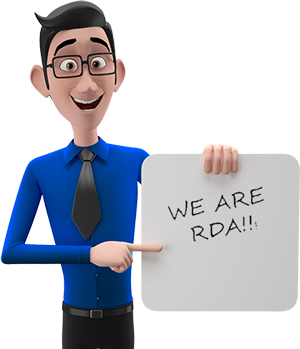HOA reserve funding plays a vital role in successful community management and financial stability. Communities that plan properly protect their property values and avoid unexpected special assessments. These well-managed reserve funds shield homeowners from sudden financial burdens and help maintain community standards.
A complete reserve funding strategy needs careful analysis and planning. HOA boards can create financially responsible plans through detailed reserve studies, maintenance schedules, and funding analysis. This piece will explore everything in establishing and managing reserve funds that work for communities in the long run.
Understanding HOA Reserve Funds
Definition and Purpose of Reserve Funds
A reserve fund is a dedicated savings account that homeowners associations keep for their most important future expenses. The funds cover large-scale repairs, replacements, and capital improvement projects. HOA’s reserve funds work just like your household emergency account and protect communities from unexpected financial burdens while maintaining shared assets properly.
Reserve funds help pay for these most important projects:
- Roof replacements for community buildings
- Road repaving and sidewalk repairs
- Major landscaping initiatives
- Pool equipment replacement
- HVAC system upgrades
- Common area renovations
Differences Between Operating Funds and Reserve Funds
Operating funds and reserve funds play distinct roles in HOA financial management. Operating funds cover daily expenses and routine maintenance, while reserve funds target long-term financial needs. The operating fund’s balance stays relatively stable throughout the year. Reserve funds grow steadily over time to cover future most important expenses.
HOAs typically put 20 to 40 percent of their monthly dues into their reserve account. This strategy will give a solid foundation to fund future projects and keeps current operations running smoothly.
Legal Requirements for HOA Reserve Funding
HOA reserve funding follows strict legal guidelines that emphasize proper fiscal management. Most associations must maintain reserve accounts through their CC&Rs or bylaws 4. On top of that, it falls to boards to fulfill their fiduciary duty and exercise prudent fiscal management that maintains reserve integrity.
Associations rely on professional reserve studies to determine appropriate funding levels. These studies need updating every three to five years to provide a complete inspection and financial analysis. Reserve specialists typically recommend a minimum 70% funding level, though 100% funding remains the ideal target.
A well-maintained reserve fund helps prevent:
- Unexpected special assessments
- Sudden increases in association fees
- Deferred maintenance issues
- Declining property values
Boards must keep reserve funds highly liquid and separate from operating accounts 6. The board needs to stay transparent about fund management and communicate with homeowners regularly about reserve status and planned expenditures.
Conducting a Comprehensive Reserve Study
A detailed reserve study is the foundation of HOA financial planning that gives significant insights into an association’s maintenance needs and funding requirements over time.
Components of a Reserve Study
A reserve study combines two main analyzes: physical and financial 7. The physical analysis assesses common area components and their replacement costs. The financial analysis determines reserve income and expenses.
A complete reserve study contains these essential elements:
- A detailed inventory and condition assessment of components
- Life expectancy adjustments based on component’s age
- Current cost projections for replacements
- Assessment of financial health
- Contribution rates and recommendations
Frequency of Reserve Studies
States have different requirements for reserve study timing. California and Utah need updates every three years, while Nevada requires them every five years 8. Annual reviews are recommended by experts since reserve study accuracy only lasts the first year.
Regular updates become vital for these situations:
- Properties that are older or complex need updates every 2-3 years
- Properties that have many mechanical components
- Communities that plan major projects
- Associations that face changes in costs
Hiring Professionals vs. DIY Approach
Several factors shape the choice between professional and in-house reserve studies. Small communities with few assets can handle internal studies well. Larger associations need professional expertise because of these reasons:
| Professional Approach |
DIY Approach |
| Independent analysis |
Cost savings |
| Expertise in cost estimation |
Direct community knowledge |
| Reduced error probability |
Faster implementation |
| Legal compliance assurance |
Simplified process |
Communities that want to take the DIY path must have accurate cost data 10. This data comes from:
- Recent work bids
- Commercial cost services
- Historical capital expense records
Professional reserve studies are a great way to get many advantages, especially when you have complex communities. These studies give peace of mind through full analysis and help keep reserves well-funded. They also include detailed funding plans that match specific goals, whether baseline, threshold, or full funding approaches.
Developing an Effective Reserve Funding Strategy
HOA reserve funding strategies need careful planning to work effectively. Financial experts stress that you must maintain reliable reserves. This approach ensures your community’s stability and helps prevent any unexpected assessments down the line.
Setting Appropriate Funding Goals
Realistic funding targets form the bedrock of successful reserve planning. Most reserve fund experts say associations should keep their funding level at least 70% 5. The ideal target reaches 100% funding, which gives you maximum financial security .
You need to think about these funding aspects:
- Your property’s current condition
- Expected maintenance needs down the road
- Your community’s size and features
- Legal requirements in your state
Calculating Annual Reserve Contributions
The right annual contributions depend on smart planning and analysis. Most associations set aside 25% to 40% of their monthly dues for reserve funding 12. This approach prevents special assessments and ensures proper funding for future projects.
Associations need four key steps to calculate their contributions:
- Identify potential major repairs and replacements
- Determine remaining useful life for each component
- Calculate replacement costs
- Divide total costs by remaining years
A simple example shows how this works. When equipment costs USD 12,000 and has 10 years of useful life left, the annual contribution should be USD 1,200.
Balancing Homeowner Costs with Long-term Needs
| Funding Level |
Risk Assessment |
Special Assessment Likelihood |
| 100% Funded |
Minimal Risk |
Very Low |
| 70-99% Funded |
Moderate Risk |
Low |
| Below 70% |
High Risk |
Significant |
Finding the sweet spot between healthy reserves and reasonable monthly fees remains a tough challenge. Many communities choose partial reserve funding to keep monthly fees lower 13. This choice might force special assessments when major repairs can’t wait.
Ohio law says reserve contributions must be at least 10% of the annual budget. Properties with Freddie Mac, FHA, and Fannie Mae mortgages need to keep minimum reserve funding at 10%.
Money experts suggest these ways to strike the right balance:
- Regular updates to reserve studies
- Gradual fee increases
- Smart investment of reserve money
- Open talks with homeowners
Success in HOA reserve funding comes from steady and predictable contribution rates 11. Every dollar needs careful tracking and smart use to make the most of available funds.
Careful planning and constant monitoring help associations build funding strategies that work now and later. Boards can adjust contribution rates based on regular money reviews. This approach builds long-term stability and keeps costs manageable for homeowners.
Implementing and Maintaining Your Reserve Plan
HOA reserve funding works best with careful attention to detail and regular monitoring. The association needs resilient systems that maintain and adjust reserve plans effectively over time.
Regular Reviews and Updates
Reserve study updates are the life-blood of effective fund management. Professional analysts recommend detailed annual reviews to ensure accurate financial planning 14. Regular updates help associations adapt to changing costs and maintain appropriate funding levels.
Key elements of regular reviews include:
- Component condition assessment
- Cost projection updates
- Funding level evaluation
- Investment performance analysis
- Compliance verification
Associations need a well-laid-out approach to monitor reserve funds effectively. Monthly financial reports help boards track progress and spot potential problems early. On top of that, quarterly assessments help line up with long-term objectives.
Communicating with Homeowners
Open communication creates trust and brings the community together. Boards need to keep talking with residents about reserve study results and financial plans. Better communication helps avoid confusion and makes residents more willing to support funding needs.
| Communication Method |
Purpose |
Frequency |
| Newsletter Updates |
General Information |
Monthly |
| Financial Reports |
Detailed Analysis |
Quarterly |
| Community Meetings |
Interactive Discussion |
Bi-annual |
| Special Notices |
Project Updates |
As Needed |
Clear messages should show how reserve funding affects property values. Homeowners value knowing how their contributions protect their investments 16. Regular updates also help residents plan ahead for upcoming projects and their costs.
Addressing Unexpected Expenses
Even with careful planning, unexpected expenses can pop up. Associations need enough liquid funds to handle emergencies without compromising their long-term funding goals. Setting up clear protocols to handle unforeseen costs prevents rushed decisions that might affect financial stability.
These strategies will help manage unexpected expenses:
- Maintaining emergency reserves
- Establishing clear approval processes
- Documenting all expenditures
- Adjusting funding plans as needed
- Communicating changes to homeowners
Reserve analysts offer valuable insights about handling unexpected costs. Their expertise helps associations review options and keep funding approaches balanced. Regular meetings with financial advisors ensure proper management of reserve investments.
Smart investment strategies strengthen reserves significantly. Boards must balance safety, liquidity, and yield in fund management. A clear investment policy directs decision-making and ensures state regulation compliance.
This process needs constant monitoring and adjustments. Updated reserve studies help associations track accurate financial projections. Professional guidance helps boards direct complex financial decisions while staying transparent with homeowners.
Associations can build strong reserve funding programs through systematic implementation and proper maintenance. Success depends on regular reviews, clear communication, and expert guidance 11. Strong reserves give communities the financial security and stability they need for the future.
Conclusion
HOA reserve funding forms the backbone of successful community management that protects property values and prevents financial surprises. Well-planned approaches, professional reserve studies, and proper funding levels build a solid foundation for community stability. On top of that, careful monitoring and regular updates help associations maintain their financial health over time.
Successful reserve funding management needs active board involvement and clear communication with homeowners. Communities with adequate reserves show stronger property values and higher resident satisfaction consistently. Professional guidance and careful planning help HOA communities build financially sound futures that benefit everyone and preserve community assets for future generations.
For more information and assistance with HOA reserve funding, visit Reserve Data Analysis.
Related Articles:
- HOA Reserve Funds: Essential Strategies for Financial Stability
“Discover essential strategies to maintain financial stability through effective reserve funds.”
- Reserve Funding: Key to Condominium Health
“Understand why reserve funding is crucial for the health of your condominium.”
- Investing Strategies for HOA Reserve Funds: A Guide to Effective Management
“Learn about effective investing strategies for managing HOA reserve funds.”







